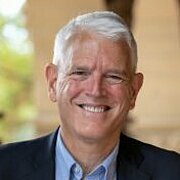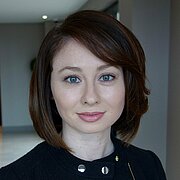Taking stock of the arms control landscape after the Trump presidency.
Russia, China, and the United States have all been developing new weapons programmes over the last years. At the same time, arms control treaties such as the Intermediate-Range Nuclear Forces treaty (INF) have been rescinded. What do these developments mean for the future of arms control? Is arms control dead? This panel will discuss these questions and examine the challenges and opportunities in this critical field of international security policy for the incoming Biden administration and look at ways Europe can meaningfully contribute to stop the current trends.
Guest speakers

Steven Pifer is a fellow at the Robert Bosch Academy. He is also affiliated with the Center for International Security and Cooperation at Stanford University and the Brookings Institution. His work focuses on nuclear arms control, Ukraine, Russia and European security. A retired U.S. Foreign Service officer, his more than 25 years with the State Department focused on U.S. relations with the former Soviet Union and Europe. He served as deputy assistant secretary of state with responsibilities for Russia and Ukraine, ambassador to Ukraine, and special assistant to the president and senior director for Russia, Ukraine and Eurasia on the National Security Council. In addition to Ukraine, he served at the U.S. embassies in Warsaw, Moscow and London as well as with the U.S. delegation to the negotiation on intermediate-range nuclear forces in Geneva. He is the author of The Eagle and the Trident: U.S.-Ukraine Relations in Turbulent Times and co-author of The Opportunity: Next Steps in Reducing Nuclear Arms.

Dr. Jane Vaynman is an Assistant Professor of Political Science at Temple University. Her work focuses on security cooperation between adversarial states, the design of arms control agreements, and the nuclear nonproliferation regime. Previously, she was the Associate Director of the Institute for Security and Conflict Studies and Research Assistant Professor at the Elliott School of International Affairs, George Washington University. She was a Stanton Nuclear Security Fellow at the Council on Foreign Relations, and has also held positions at the U.S. Department of State and the Carnegie Endowment for International Peace, as well as a Fulbright Fellowship the Carnegie Moscow Center. She is the co-founder of the Nuclear Studies Research Initiative, a project that promotes intellectual exchange and cross-fertilization for emerging nuclear research in policy, history, and political science. She received her PhD in political science from Harvard University.
Chair

Marina Henke is Professor of International Relations at the Hertie School. She researches and publishes on military interventions, peacekeeping, and European security and defense policy. Before joining the Hertie School, she was an Assistant Professor at Northwestern University, specialising in international relations and at Princeton University where she was a Lecturer and Postdoctoral Research Associate at the Woodrow Wilson School of Public and International Affairs. Henke holds a PhD in Politics and Public Policy from Princeton University, a Double-MS in Development Studies and International Political Economy from Sciences Po Paris and the London School of Economics, and a BA in Economics, Politics and Latin American Studies from Sciences Po Paris.
About this event
The event is part of the Centre's research project "Understanding Nuclear Assurance, Deterrence and Escalation in Europe". Funded by the Stanton Foundation this project examines what is at the heart of European nuclear security.


